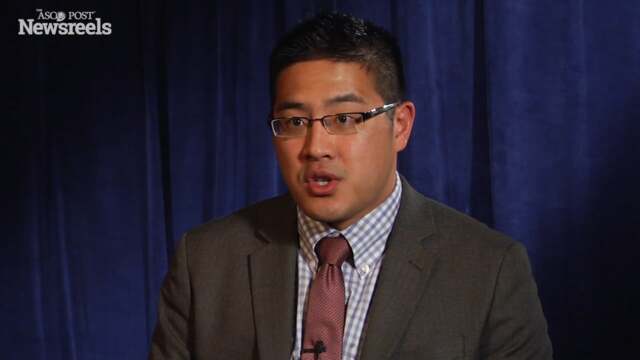Joel E. Tepper, MD, on Radiotherapy in Liver and Pancreatic Cancers
2015 ASTRO Annual Meeting
Joel E. Tepper, MD, of the University of North Carolina School of Medicine, discusses the ways in which SBRT has changed radiotherapy, as demonstrated in key studies presented at this year's meeting on stereotactic body radiotherapy for liver metastases and hepatocellular carcinoma, and borderline resectable and unresectable pancreatic tumors (Abstracts 253, 255, 351, 357).
Robert Kuske, MD
Robert Kuske, MD, of Arizona Breast Cancer Specialists, discusses the evaluation of more than 1,300 patients with accelerated partial-breast irradiation via multicatheter interstitial brachytherapy, focusing on toxicity and cosmetic outcomes (Abstract 133).
Samuel Chao, MD
Samuel Chao, MD, of Cleveland Clinic, discusses the QMAP program and data-driven management, which offer ways to improve consistency and drive quality in radiation oncology departments (Abstract 39).
Alysa M. Fairchild, MD
Alysa M. Fairchild, MD, of the Cross Cancer Institute and the University of Alberta, discusses her study on the use of dexamethasone to reduce pain flare in patients receiving palliative radiotherapy for bone metastases (Abstract LBA6663).
Stephen G. Chun, MD
Stephen G. Chun, MD, of MD Anderson Cancer Center, discusses the comparison of 3D conformal and IMRT outcomes for locally advanced non-small cell lung cancer (Abstract 2).
Roy Decker, MD, PhD
Roy Decker, MD, PhD, of Yale University School of Medicine, discusses a National Cancer Database analysis that showed elderly patients with limited-stage small cell lung cancer can benefit from adding concurrent radiation to chemotherapy (Abstract 1010).





